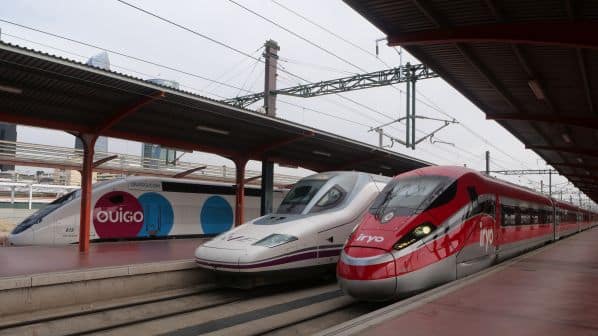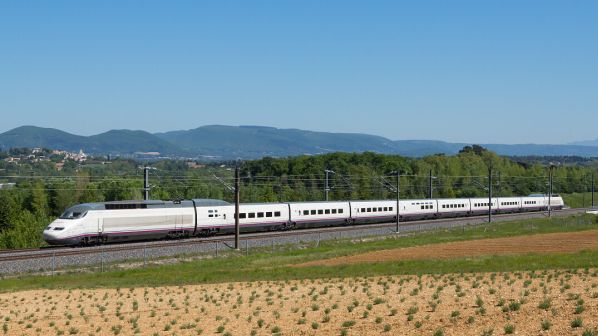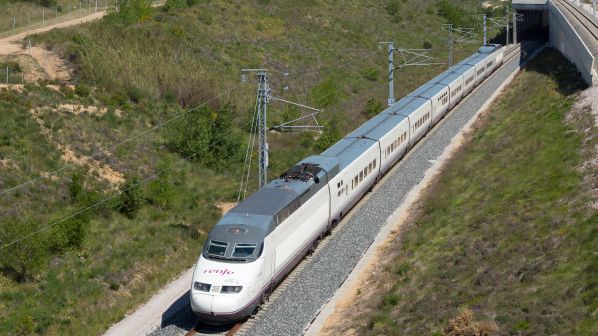SPANISH infrastructure manager Adif and its high-speed counterpart Adif AV are currently consulting both existing and potential operators on the next phase of opening up the national passenger market to competition.
In response to operator demand, the deadline for returning online consultation questionnaires has been extended by two weeks to September 29.
Adif says that the responses will be used to help design the next phase of market opening, and that they will be treated as confidential if the respondents so desire, as well as the contents of any subsequent interviews.
Only high-speed services have so far been opened up to competition in Spain, with incumbent national operator Renfe now competing head-to-head with the Ouigo brand of French National Railways (SNCF) and Iryo, backed by Trenitalia.
The questionnaire seeks details of the potential routes that respondents would be interested in operating under a framework agreement with the infrastructure manager, as well as the service frequency and calling points.
Adif is also seeking details of ridership estimates and the expected turnaround time at terminals. On rolling stock, operators are asked to provide details of the trains they would use, including seating capacity, maximum speed, and whether they would be operated as single sets or in multiple.
The questionnaire specifically asks if the respondent would be interested in using the standard-gauge tunnel between Atocha and Chamartín stations in Madrid that has been in use by high-speed services since July 1 2022.
Operator consultation is also seeking to determine interest in using the chords south of the capital that enable services from Barcelona and Zaragoza, as well as from Valencia and Alicante, to directly join the high-speed line to Córdoba, Málaga and Seville without reversing in Madrid.
Respondents are asked to estimate the desired term of the framework agreement that they might sign, given the minimum period required to make the necessary investment in the new services and knowing that there would be economic penalties in case of non-use of agreed capacity.
Those who have already signed a framework track access agreement with the infrastructure manager are asked if they would be interested in extending this to other destinations and to provide details of these.
Within the current legal limits, operators are asked if they would be interested in greater cooperation with other operators in operating services or bidding for train paths. The questionnaire asks: “would you be in favour of a code-sharing system, analogous to the one that operates in the airline industry?”
In the event of the infrastructure manager not being able to meet all requests for paths, the questionnaire asks what priority criteria for allocating paths should be applied in addition to those already in place.
Respondents are also asked to provide details of how they expect to undertake rolling stock maintenance and train cleaning, whether this is contracted out to a rolling stock manufacturer or other operators, or at the operator’s own maintenance facility. If the latter option is preferred, the questionnaire asks for details of the desired location.
Details are sought of the facilities that would be required at stations, including premises for ticket sales, customer services and passenger lounges, the space needed for ticket vending machines and passenger information systems, and areas that would be needed for on-train personnel such as locker rooms.
The questionnaire asks if there are any products or services not currently provided at stations that the operators would wish to see, and if there are any services that they would be willing to share with other operators, or to use those provided by one operator to other interested parties.




